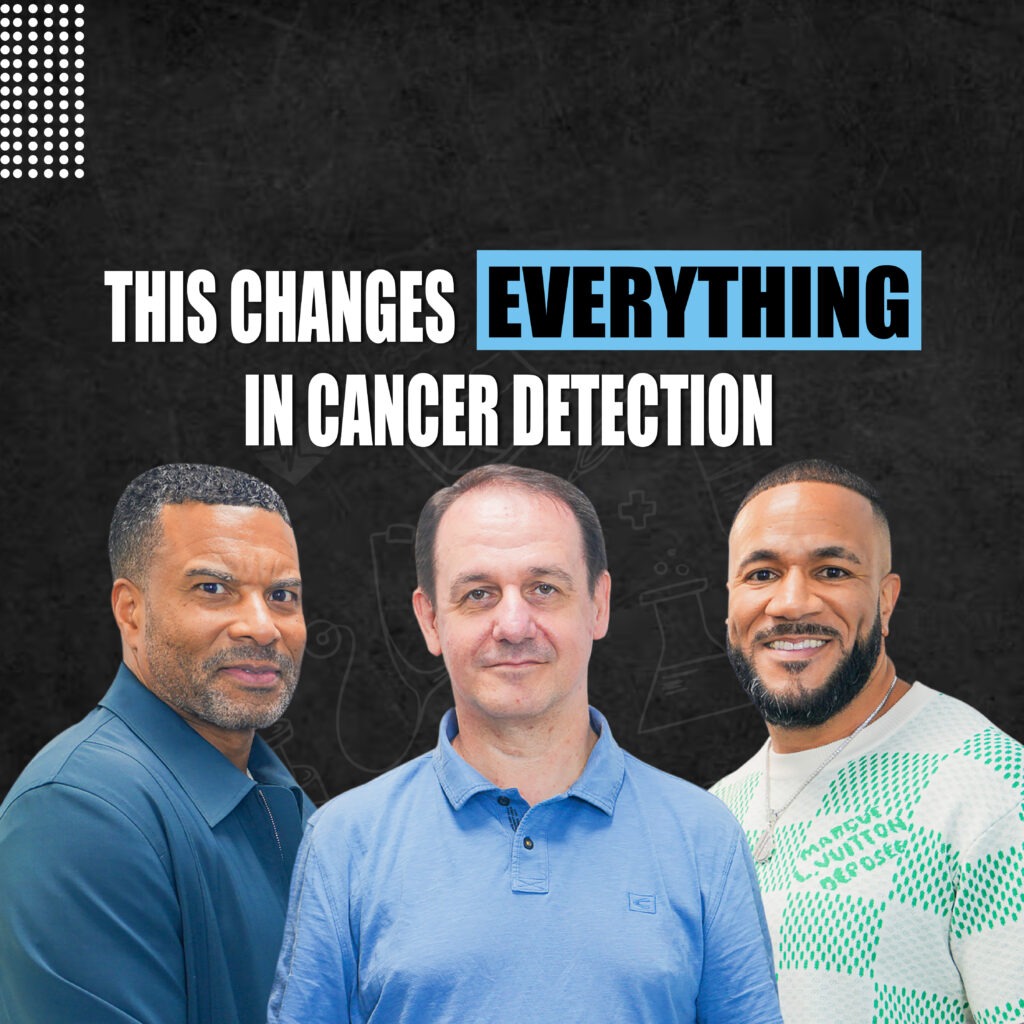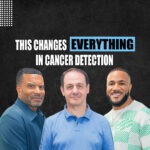In the field of cancer care, timing is everything. Yet too often, people receive a diagnosis only after the disease has progressed into advanced stages. This gap between onset and detection is where modern medicine is being challenged and revolutionized by new technologies like liquid biopsy and precision testing from RGCC Laboratories.
In a recent episode of “A Healthy Point of View” podcast, Sam Tejada, CEO and founder of Liquivida®, sat down with Dr. Christopher Davis, Liquivida’s Chief Medical Officer and an interventional cardiologist, alongside Dr. Ioannis Papasotiriou, founder of RGCC. Together, they explored how early detection, personalized diagnostics, and data-driven treatment are opening new doors in the fight against cancer.

Why Conventional Screening Isn’t Enough
Current screening methods like colonoscopies, mammograms, or full-body MRIs are limited to detecting tumors that have already reached a certain size. These methods rely on the physical presence of disease. What happens before that point often goes unnoticed.
Dr. Papasotiriou explained that cancer doesn’t begin with a tumor. The disease develops gradually through a biological process called carcinogenesis, which can take years. The first sign isn’t a mass; it’s the immune system reacting to cellular changes. RGCC has developed tests that can detect these early immune responses, long before traditional diagnostics pick up a problem.
The Science Behind RGCC Testing
RGCC, short for Research Genetic Cancer Center, is a group of labs focused on early cancer detection, molecular diagnostics, and personalized treatment strategies. Their liquid biopsy technology identifies circulating tumor cells (CTCs), tumor DNA (ctDNA), and changes in immune function, all from a simple blood sample.
The OncoDeclare test, for instance, detects immune system alterations that suggest the body is responding to abnormal cells. OncoTrace looks for actual circulating tumor cells in the bloodstream. These two layers of testing help identify disease activity before symptoms begin or tumors become visible on imaging.
In Dr. Davis’s experience using RGCC testing with his patients, results have been powerful. Cases of undiagnosed prostate cancer, for example, were detected well before any physical signs appeared. By tailoring natural therapies based on the test results, Dr. Davis saw some patients’ tumor cell counts drop to zero without resorting to conventional chemotherapy.
Precision Treatment, Not Guesswork
One of the most impactful aspects of RGCC’s approach is its emphasis on personalized treatment. Rather than applying a one-size-fits-all drug regimen, their testing exposes tumor cells to dozens of pharmaceutical and natural agents in the lab, identifying which compounds the cancer responds to best.
This removes much of the guesswork from cancer therapy. As Dr. Papasotiriou put it, “Any drug, conventional or natural, only works if it’s targeting the right protein or pathway. Our job is to find what that is for each patient.”
This process includes transcriptomics, or gene expression profiling, which offers insights into how aggressive a tumor may be, whether it’s likely to spread, or whether it’s resistant to certain treatments. This level of detail allows clinicians to design therapies that are informed, targeted, and more effective from the start.
The Role of Lifestyle and Environment
Another key focus they discussed was prevention. While many hereditary cancers are rare, most are influenced by environment and lifestyle. That’s why Dr. Papasotiriou encourages screening not only based on age, but also on environmental exposure, profession, and habits. Firefighters, for instance, like Sam Tejada, who served in the role for 12 years, are exposed to high levels of toxins and are at greater risk.
RGCC’s screening tools are designed to spot changes that can still be reversed through lifestyle adjustments, environmental detoxification, and early intervention, before cancer fully develops.
Barriers to Adoption in the U.S.
Despite its promise, this type of testing has not yet become standard in the U.S. healthcare system. In Europe, guidelines are evolving to include molecular diagnostics and precision medicine. In the U.S., change is slower due to regulatory and systemic inertia.
Dr. Davis noted the frustration of seeing promising tools delayed by bureaucracy. “We’re spending four times more on cancer care in the U.S. than other countries, but not getting better outcomes,” he said. “This kind of testing could save lives and money if adopted earlier.”
A Mission That Stays Independent
Perhaps most impressive is RGCC’s commitment to remaining privately owned. Dr. Papasotiriou reinvests 85% of profits into research, refusing outside investors to avoid commercial pressure. This independence allows RGCC to pursue long-term goals, such as developing novel treatments, testing new drug compounds, and integrating AI-powered data analysis without compromising the integrity of their science.
Their platform currently screens around 90 pharmaceutical agents and 80 natural products, with more being added as data expands. The vision is to develop customized therapies for every type of cancer based on real-world patient data.
We don’t have to wait for a late-stage diagnosis to act. With the right tools and information, cancer can be detected earlier, treated more precisely, and even prevented. But it takes awareness, education, and a willingness to shift away from outdated systems.
Whether you’re a practitioner, patient, or simply someone concerned about long-term health, this conversation offered a glimpse of where medicine is going and why it’s time to pay attention.
As Dr. Papasotiriou concluded, “Don’t give up. Every sample we analyze today may generate a solution for someone tomorrow.”

